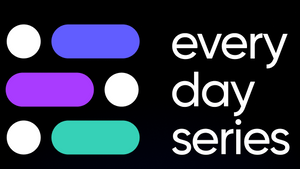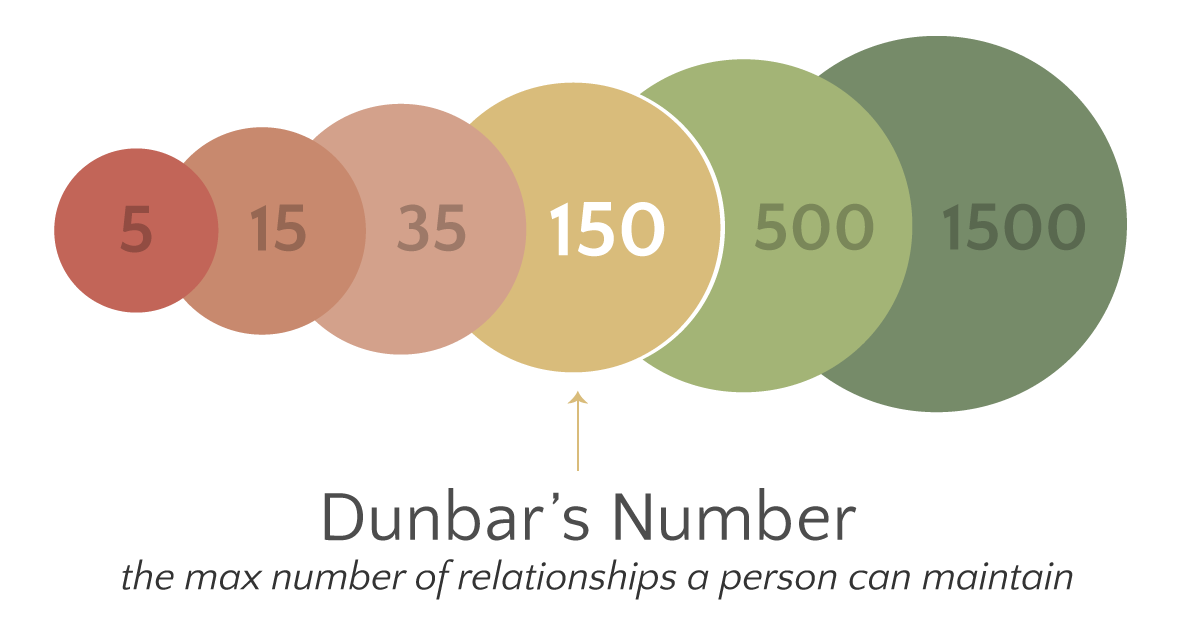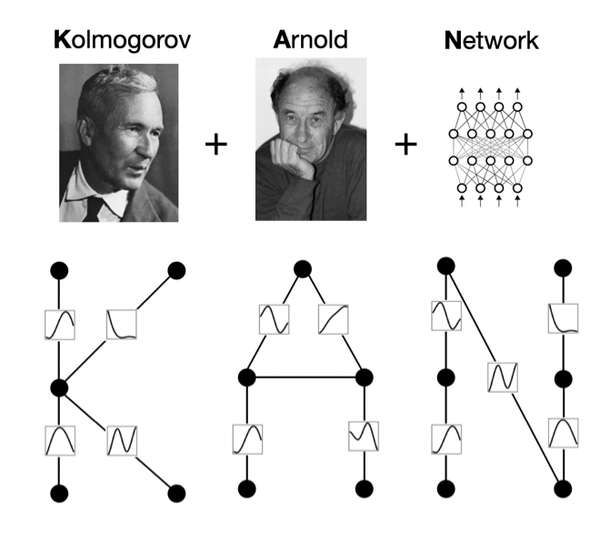Dunbar’s Number is a theoretical cognitive limit to the number of meaningful relationships that any one individual can have. It was named after British anthropologist Robin Dunbar, who suggested in 1992 that humans can comfortably maintain relationships with no more than 150 people. The concept has been used to explain why humans tend to form relationships in groups of roughly this size, and why this size often appears in the structure of human communities, businesses and organizations.
The idea of Dunbar’s Number comes from research into the relationship between brain size and group size in primates. It suggests that the size of the neocortex, the part of the brain responsible for higher-order thinking, governs the size of the groups that primates can maintain. Dunbar’s number is thought to be a rough approximation of the maximum number of people with whom any one person can maintain meaningful relationships.
In addition to being an interesting theoretical concept, Dunbar’s Number has practical implications for how humans interact. For example, it suggests that if you have more than 150 friends on social media, then it is unlikely that you can maintain close relationships with them all. It also suggests that it may be challenging to form meaningful relationships when working with a large group of people.
Dunbar’s Number is also important for understanding the way human societies and organizations are structured. Many organizations are structured around groups of roughly 150 people, which may be an unconscious effort to keep within Dunbar’s Number. This can help ensure that members of the group can maintain meaningful relationships with each other and work together more efficiently.
Overall, Dunbar’s Number is an interesting concept that suggests humans may have a cognitive limit to the number of meaningful relationships they can maintain. It has implications for the way humans interact and the way organizations are structured. It can help us better understand why humans form relationships in the way that they do.
If you like our work, please consider supporting us so we can keep doing what we do. And as a current subscriber, enjoy this nice discount!
Also: if you haven’t yet, follow us on Twitter, TikTok, or YouTube!









